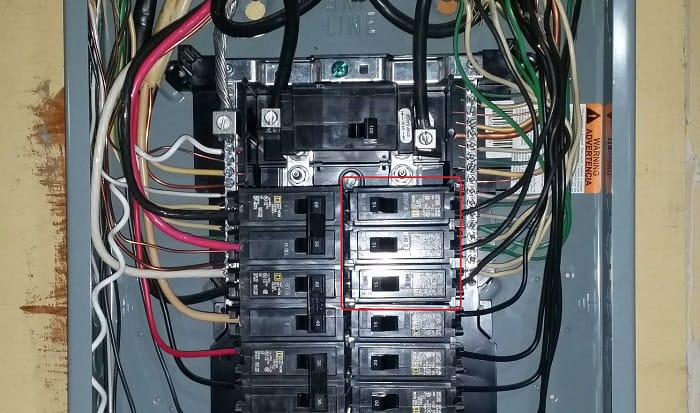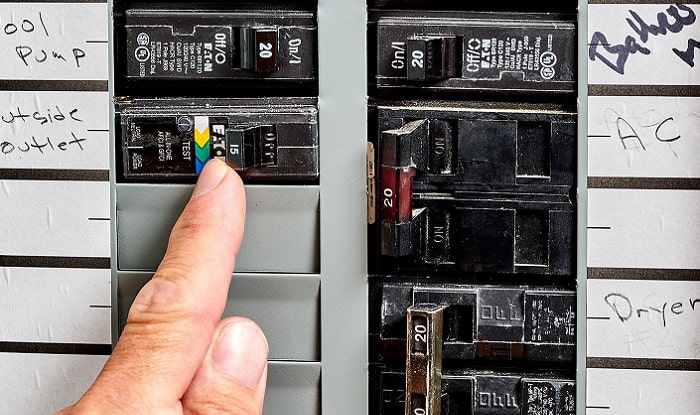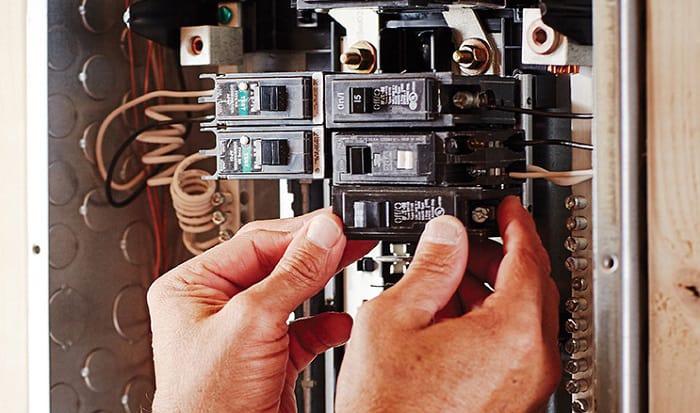Are you currently living in an older home? If yes, then this article may just be what you need! According to expert electricians, electrical panels must be regularly replaced every 25 to 40 years. Thus, it may be time to change your panel if you reside in a home built in the 1980s.
So, Are AFCI breakers required when changing a panel? Well, it depends on what you’re changing in your panel.
If you are merely changing the physical protective panel itself, you wouldn’t need to add AFCI breakers to your pre-existing panels.
However, suppose you intend to add circuits to your panel. In that case, you will need to add AFCI circuit breakers, depending on how much circuitry you’ll add.
Table of Contents
Are Changing Electrical Panels Required When to Have AFCI Breakers?
You will only need to add an AFCI breaker panel if the renovation to the electrical panel includes adding outlets, receptacles, and wirings more than 6 ft. in length. If not, you are not mandated to add an AFCI, as per the 2017 NEC.
Overall, the 2017 National Electric Code (NEC) governs everything concerning your circuitry and electrical matters. AFCI breaker requirements, as such, are accordingly underlined within the NEC.
Particularly, the 2017 NEC outlines the following provisions to whether an AFCI is required on panel upgrade:
In case of modification, replacement, or extension of any branch-circuit wiring, users must ensure to protect the branch circuit with either:
- A listed combination-type AFCI located at the branch circuit’s origin.
- A listed outlet branch-circuit-type AFCI located at the first receptacle outlet of the current branch circuit
In layman’s terms: an arc-fault circuit interrupter is only required when the overall circuitry of the electric panel is extended with additional wiring and coverage.
The specific wording of the quoted 2017 NCE AFCI breakers code explains that modification calls for AFCI installation. As such, if the panel doesn’t include any new wirings and additional circuitry, there should be no need to adhere to the AFCI requirements.
However, there’s a caveat. Arc fault requirements of the 2017 NEC outline that any wiring additions LESS THAN 6 ft.(1.8 m) and don’t include the addition of any receptacles or outlets that could be modified in the panel without installing AFCI.
This essentially entails that you could add wirings to your electric panel, as long as it does not exceed 6 ft. in length. You can refer to the NEC 210.12(D)(Exception) section of the 2017 National Electric Code for more details regarding this ruling.
However, suppose the panel modification includes adding receptacles, outlets, or wirings that are more than 6 ft. in length. In that case, an AFCI must be installed accordingly so that your home remains compliant with the NEC.
Additionally, you should also be wary of NEC 210.12(A), which prescribes arc fault breaker requirements. Namely, the said NEC provision outlines that ACFI protection should be added to the following areas in case of panel extension:
- Kitchens
- Family rooms
- Dining rooms
- Living rooms
- Parlors
- Libraries
- Dens
- Bedrooms
- Sunrooms
- Recreational rooms
- Closets
- Hallways,
- Laundry areas
or any similar rooms
Frequently Asked Questions
In my experience, a relevant follow-up question that I had received before regarding this topic is: when is the proper time to replace an electrical panel?
The answer is quite simple, actually. You’ll know that it’s the appropriate time to replace or renovate your electrical panel if it satisfies the following criteria:
- It’s old
- There are physical signs of damage on the panel itself
- You can smell a burning odor emanating from the electrical panel
If any of the mentioned is present in your home’s panel, then it may be time to replace it. I suggest that you call on a professional electrician to do your panel’s bidding to ensure your safety.
Conclusion
Changing your home’s electrical panel could be a daunting task, especially if you’re not familiar with the nitty-gritty of all things related to electricity.
Don’t fret, however. Perhaps you may search for guides on the Internet. Maybe even ask your own friends for electrical advice. No matter how knowledgeable they may seem, you should note “when are AFCI breakers required when changing a panel?”
To remind, you won’t need to install AFCI breakers if you’re only performing aesthetic, physical renovation to your panel box. However, if you’re adding wirings, receptacles, and outlets, then the 2017 NEC mandates that you add an AFCI breaker to your circuit.

I am Andrew Wright. With 8 years of experience designing, installing, and maintaining electrical power systems. I love my job, and I have always wanted to offer others the necessary help so they can take care of their houses.



